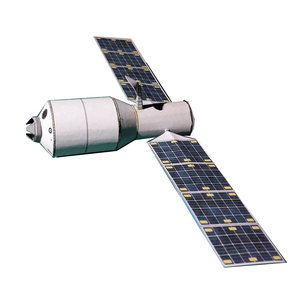Science News Roundup: Chinese spacecraft returns to Earth after the inaugural flight; Moon 'wobble,' climate change seen as driving coastal flooding in 2030s and more
The spacecraft lifted off from a launch centre in northwest China on Friday and completed its flight according to "set procedures", said China Aerospace Science and Technology Corp (CASC), the country's main space contractor. Moon 'wobble,' climate change seen as driving coastal flooding in 2030s U.S. coastlines will face increasing flooding in the mid-2030s thanks to a regular lunar cycle that will magnify rising sea levels caused by climate change, according to research led by NASA scientists.

Following is a summary of current science news briefs.
Chinese spacecraft returns to Earth after the inaugural flight
A Chinese spacecraft capable of flying to the edge of the atmosphere took off and returned to Earth on the same day in what China said was a big step towards developing reusable space transportation technology. The spacecraft lifted off from a launch center in northwest China on Friday and completed its flight according to "set procedures", said China Aerospace Science and Technology Corp (CASC), the country's main space contractor.
Moon 'wobble,' climate change seen as driving coastal flooding in the 2030s
U.S. coastlines will face increasing flooding in the mid-2030s thanks to a regular lunar cycle that will magnify rising sea levels caused by climate change, according to research led by NASA scientists. A key factor identified by scientists is a regular "wobble" in the moon's orbit - first identified in the 18th century - that takes 18.6 years to complete. The moon's gravitational pull helps drive Earth's tides.
Bezos and crewmates prepare for inaugural Blue Origin space flight
Billionaire American businessman Jeff Bezos and his three crewmates are engaging in a crash course of training on Sunday in preparation for his company Blue Origin's inaugural flight to the edge of space planned for Tuesday. The suborbital launch from a site in the high desert plains of West Texas marks a crucial test for Blue Origin's New Shepard spacecraft, a 60-foot-tall (18.3 meters) and fully autonomous rocket-and-capsule combo that is central to plans by Bezos to tap a potentially lucrative space tourism market.
Teenager to fly with Bezos in inaugural space tourism flight
An 18-year-old physics student whose father heads an investment management firm is set to take the place of a person who put up $28 million in an auction to take part in the inaugural space tourism flight for billionaire Jeff Bezos' Blue Origin company. Blue Origin said on Thursday Oliver Daemen will join the four-member all-civilian crew for Tuesday's scheduled flight after the auction winner, whose name had not been made public, dropped out due to unspecified "scheduling conflicts." Daemen becomes the company's first paying customer.
Scientists stunned by rare Arctic lightning storms north of Alaska
Meteorologists were stunned this week when three successive thunderstorms swept across the icy Arctic from Siberia to the north of Alaska, unleashing lightning bolts in an unusual phenomenon that scientists say will become less rare with global warming. “Forecasters hadn’t seen anything like that before,” said Ed Plumb, a National Weather Service meteorologist in Fairbanks, speaking about the storms that started on Saturday.
(This story has not been edited by Devdiscourse staff and is auto-generated from a syndicated feed.)
ALSO READ
UK Targets Russian Oil Giants and Billionaire Lakhani in New Sanction Wave
Billionaire Banker Ruben Vardanyan Faces Life Sentence in Baku Court
Billionaire Philanthropy Boosts Invest America Accounts for Kids
Belarusian Sentenced for Siberian Railway Attacks
UK Targets Russian Oil Giants and Billionaire with New Sanctions










